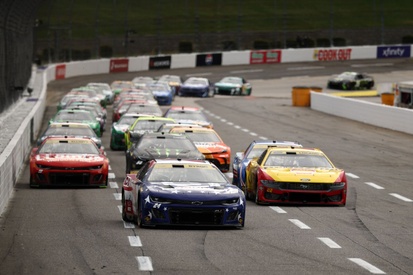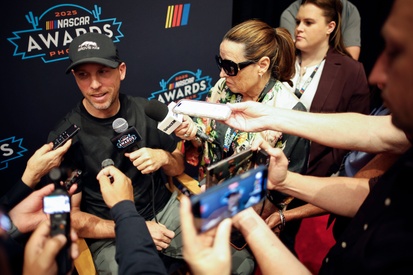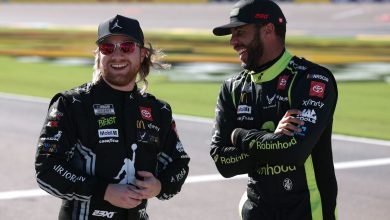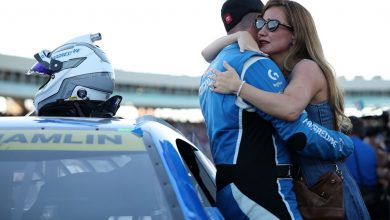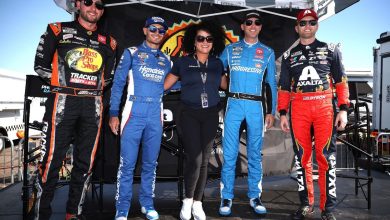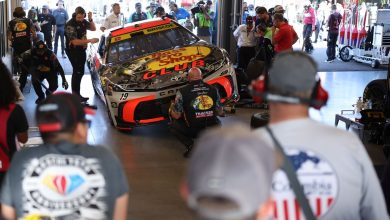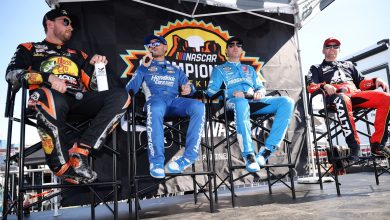Judge rules against NASCAR in key area; may deem Charters unlawful
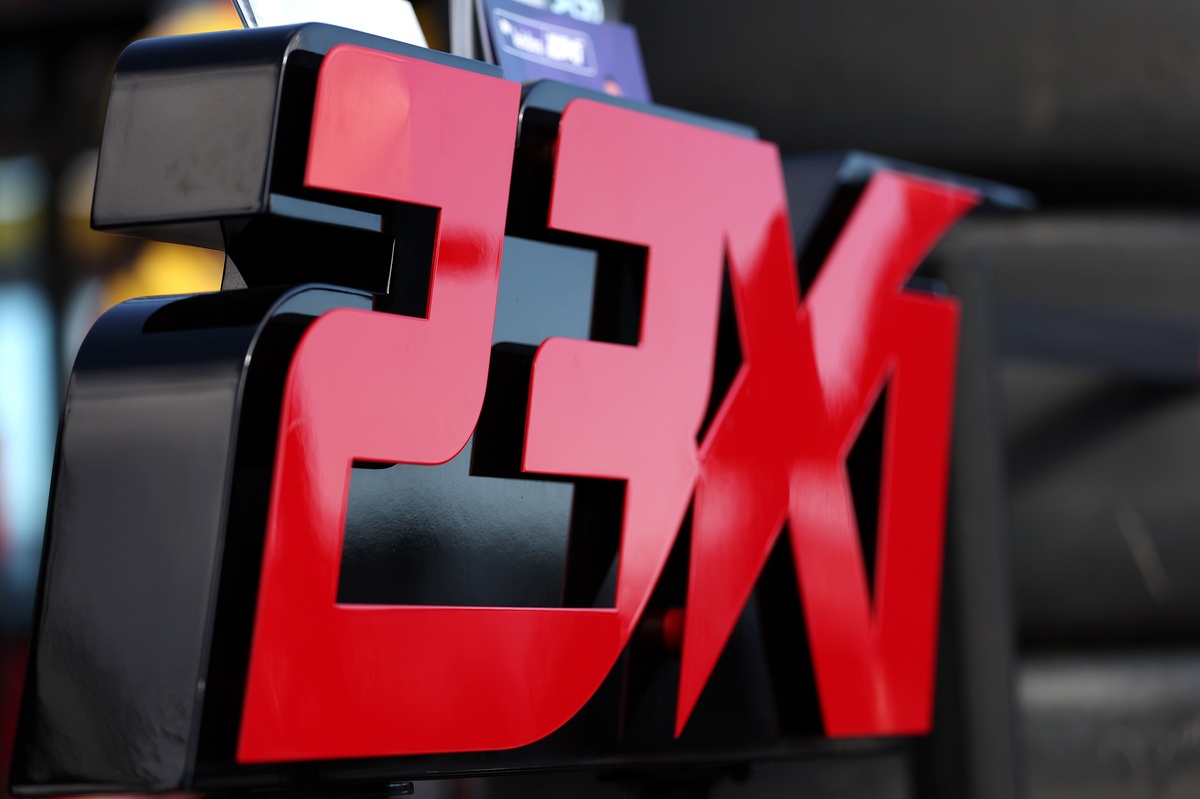
The judge overseeing the 23XI Racing and Front Row Motorsports v NASCAR antitrust lawsuit ruled again in favor of the teams against the Sanctioning Body on summary judgment on Tuesday afternoon.
Summary judgment is a pretrial decision where there are no disputes of material fact. In other words, a judge could rule on the merits, based on evidence presented by both sides, and without a jury.
Judge Kenneth D. Bell has now ruled against NASCAR twice in as many weeks, first on the countersuit filed by the Sanctioning Body and now on the market definition in which the legal dispute is centered on.
Last week, Judge Bell ruled that NASCAR‘s counterclaims, alleging an anticompetitive conspiracy led by 23XI investor Curtis Polk, were not legally sound nor entirely supported by the facts.
On Tuesday, Bell ruled that the market in question is ‘premiere Stock Car racing,’ and that NASCAR is the only buyer for the services of ‘premiere Stock Car racing’ teams.
Judge Bell says NASCAR argued contradictory positions over the past year in which it countered the two teams by saying they could choose to race in F1 or IndyCar in the absence of agreeable charter terms while also arguing that it was the only place for such teams to race as the basis for why Polk would attempt to form a collective bargaining entity amongst horizontal competitors.
From the filing:
“In the Counterclaim, which alleged that the Teams unlawfully conspired in selling their racing services, NASCAR ‘deliberate[ly], clear[ly] and unambiguous[ly]’ alleged that the relevant market is ‘the market for entry of cars into NASCAR Cup Series races in the United States and any other location where a Cup Series race is held.’ This is effectively the same as the relevant market alleged by Plaintiffs – the ‘input market for premier stock car racing teams.’ The same transaction – the sale and purchase of premier stock car racing services – cannot be a different relevant market depending only on which side is complaining. Most simply put, NASCAR made a strategic decision in asserting its Counterclaim and must now live with the consequences.”
There is a legal phrase for such a contradiction, legal estoppel, and 23XI and Front Row urged Judge Bell to consider that NASCAR had estopped itself.
Bell ruled it had in the filing paragraph below:
“NASCAR argues that the relevant market that it alleges for its Counterclaim – in nearly the same words as Plaintiff describes their relevant market – is somehow not the same market. A simple example should suffice to show why NASCAR can’t play the same hand twice in different ways.
“In pursuing its Counterclaim, NASCAR argued that the Plaintiffs had market power in the relevant Cup Series market because it could not reasonably substitute IndyCar or Formula 1 racing teams or even the racing teams participating in its two lower level series. … However, in opposing Plaintiffs’ relevant market, NASCAR now contends that the same motorsports that could not supply racing teams to the Cup Series are suddenly readily available substitutes for the Cup Series teams like Plaintiffs to sell their services. Not only is it illogical, but there is no record evidence that racing teams in the various motorsports can only move from NASCAR to another motorsport but not vice-versa.”
Judge Bell issued example after example of where NASCAR estopped itself in issuing contradictory positions.
“Neither NASCAR’s executives nor its experts identified any other purchaser of premier stock car racing team services in the relevant market. See Doc. No. 231-6 (Jim France) Q: “What other stock car racing series do you view as comparable to the Cup Series in the United States?” . . . A. “I don’t know. I don’t have any right offhand.”); Doc. No. 231-7 (Steve Phelps) (Q. “Can you identify . . . any stock car racing series that is a close competitor to NASCAR in terms of prize money, television ratings, attendance, any economic metric you want to use?” … A. “Nothing comes to mind.”); …
“Therefore, NASCAR effectively has a 100% market share. And NASCAR has maintained its total share of the market for decades, as acknowledged by the experts on both sides.”
What it all means
So what does this mean? It means that the trial, scheduled to begin on December 1 will only be about if NASCAR used this market authority, in which they are the only purchaser of ‘premiere Stock Car racing teams’ to impose below market value terms on the teams when negotiating an extension to the Charter agreement that has governed the economics of the sport since 2016.
“In sum, NASCAR plainly exercises monopsony power in the relevant market under the governing analysis. Not only has it operated the only premier stock car racing series in the United States for many years, the barriers for others to enter the market (availability of large racing tracks, highly qualified racing car teams, etc.) are obvious. Therefore, Plaintiffs are entitled to Summary Judgment that NASCAR has monopsony power in the relevant market in partial support of its Section 2 Sherman Act claim.
“And, establishing monopsony power for a Section 2 claim similarly leads to a finding that NASCAR has market power for purposes of Plaintiffs’ Section 1 claim, which requires a lower relevant market share threshold than is needed to infer monopoly power.”
Remember that a monopsony is when the only buyer of services imposes below market prices on the seller because it has nowhere else to provide its services too.
The judge has ruled that NASCAR is the only buyer of premiere Stock Car race teams.
NASCAR has argued that it cannot be a monopsony because it increased the revenue to signing teams from the 2016 charter agreement to the 2025 extension.
Judge Bell rejects that notion too, in part because NASCAR issued a final take it or leave it charter terms agreement to teams after two years of negotiation.
“In the face of these considerable undisputed facts, NASCAR argues that there is still a material factual dispute on the issue of its monopsony power because its payments to the Teams have increased rather than decreased over time. … First, with full control over the limited duration Charters necessary to be an economically viable Cup Series racing team, NASCAR indisputably had the power to decrease demand by denying Charters to any team that did not agree to its final Charter terms.
“The fact that it only had to use that power against the Plaintiffs doesn’t mean that it lacks monopsony power. Also, the relevant inquiry is whether NASCAR had the power to suppress team payments below competitive levels. … Evidence that NASCAR ‘increased’ payments, without reference to whether those payments reached the level of a ‘competitive’ market falls short of that proof.”
And since NASCAR, in its contradictory arguments stated they had not evaluated another equivalent buyer for the services of premiere Stock Car racing teams, the increased revenue is not enough to stave off a monopsony defense.
“NASCAR’s final argument that it lacks monopsony power because Plaintiffs and the public have numerous other sports in which to invest or to watch is also unavailing.
“Of course, Plaintiffs could exit the relevant market and fans could decide to seek entertainment elsewhere, but those options say nothing about NASCAR’s monopsony control of the relevant market.”
Is the NASCAR Charter Agreement unlawful?
The footnote that has both NASCAR and the teams that signed the new charter agreement nervous is Judge Bell suggests the entire charter agreement itself might be anticompetitive since it possibly ‘restrains trade’ from teams that otherwise would seek entry into the Cup Series.
“There is also evidence in the record from which the jury and/or the Court could conclude that the Charter agreements themselves are anticompetitive restraints on trade with respect to Cup Series aspirants who don’t have Charters.”
In other words, the charter system drove up the barrier of entry to compete in the Cup Series.
The 12 teams that signed the charter agreements issued a series of affidavits last month urging both parties to settle before there is an outcome that renders the value of the charter system moot.
NASCAR has stated on numerous fronts that it wants to reach a settlement but after two days of mediation last month, the two sides were not able to agree to terms.
NASCAR and teams react to newest ruling
In a statement, NASCAR again expresses its wish to settle but also expresses righteousness that it is not a monopsony and will appeal any decision against it to the Fourth Circuit Court should that be the result.
“NASCAR looks forward to proving that it became the leading motorsport in the United States through hard work, risk-taking, and many significant investments over the past 77 years. The antitrust laws encourage this—and NASCAR has done nothing anticompetitive in building the sport from the ground up since 1948. While we respect the Court’s decision, we believe it is legally flawed and we will address it at trial and in the Fourth Circuit if necessary. NASCAR believes in the charter system and will continue to defend it from 23XI and Front Row’s efforts to claim that the charter system itself is anticompetitive.”
23XI and Front Row issued a statement as well through lead attorney Jeffrey Kessler.
“We are very pleased with the Court’s decision today, ruling in our favor. Not only does it deny NASCAR’s motion for summary judgment, but it also grants our partial summary judgment motion, finding that NASCAR has monopoly power in a properly defined market. This means that the trial can now be focused on whether NASCAR has maintained that power through anticompetitive acts and used that power to harm teams. We’re prepared to present our case to the jury and are focused on obtaining a verdict that benefits all of the teams, partners, drivers, and the fans.”
We want your opinion!
What would you like to see on Motorsport.com?
– The Motorsport.com Team
